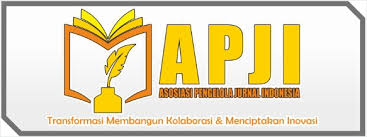Economic Empowerment Through Entrepreneurship Training to Advance Youth in Quetta, Pakistan
DOI:
https://doi.org/10.70610/iare.v1i2.47Keywords:
advancing youth, economic empowerment, entrepreneurship trainingAbstract
The purpose of writing this work is to understand the concept of assisting economic empowerment through entrepreneurship training to advance youth in Quetta, Pakistan. Economic empowerment through entrepreneurship training in Quetta, Pakistan, adopts a robust and holistic mentoring method known as the ABCD (Asset-Based Community Development). The result of this work is that ten key components have been identified in efforts to empower youth in Quetta, Pakistan. Mentorship and business consultation offer invaluable guidance and support for business development. Access to capital facilitates efficient business initiation and growth, while advanced training enhances specialized skills. Networking and business connections are essential for youth advancement, and psychological guidance helps them cope with stress. Effective online and offline marketing and promotion ensure successful product and service promotion. Access to resources, including co-working spaces and software, reduces barriers to entry and improves efficiency. Finally, financial education equips youth with wise financial management skills. With these components, Quetta's youth have a greater opportunity to achieve economic success and contribute to their community's economic development. The research findings highlight that a comprehensive economic empowerment program in Quetta, Pakistan, incorporating mentorship, business consulting, access to capital, advanced training, networking, psychological support, effective marketing, resource access, and financial education, significantly enhances the potential for youth economic success and contributes to community development. Collectively, these key components create a supportive ecosystem for young entrepreneurs in Quetta to thrive in their businesses.
References
Boldureanu, G., Ionescu, A. M., Bercu, A.-M., Bedrule-Grigoruță, M. V., & Boldureanu, D. (2020). Entrepreneurship education through successful entrepreneurial models in higher education institutions. Sustainability, 12(3), 1267.
Coudounaris, D., & Arvidsson, H. G. S. (2019). Recent literature review on effectuation. International Marketing Track of the Academy of Marketing Conference, 2–4.
David, A. (2019). Understanding the invention phase of management innovation: a design theory perspective. European Management Review, 16(2), 383–398.
Demian, M., Fumanti, M., & Lynteris, C. (2023). Anthropology and Responsibility. Taylor & Francis.
Dolan, C., & Rajak, D. (2018). Remaking Africa’s informal economies: Youth, entrepreneurship and the promise of inclusion at the bottom of the pyramid. In Globalization, economic inclusion and African workers (pp. 52–67). Routledge.
Emami Langroodi, F. (2021). Schumpeter's Theory of Economic Development: a study of the creative destruction and entrepreneurship effects on economic growth. Journal of Insurance and Financial Management, 4(3).
Hamilton, L. (2019). Amartya Sen. John Wiley & Sons.
Harini, R., & Savithri, R. (2021). Entrepreneurship and startup policy of India and its impact. PalArch’s Journal of Archaeology of Egypt/Egyptology, 18(1), 4668–4673.
Iwu, C. G., Opute, P. A., Nchu, R., Eresia-Eke, C., Tengeh, R. K., Jaiyeoba, O., & Aliyu, O. A. (2021). Entrepreneurship education, curriculum and lecturer-competency as antecedents of student entrepreneurial intention. The International Journal of Management Education, 19(1), 100295.
Kariuki, J. W. (2021). Mama Mboga: exploring the continuity of micro retailers of fresh fruit and vegetables in Nairobi, Kenya.
Kuhumba, S. (2018). Amartya Sen’s capability approach as theoretical foundation of human development. Journal of Sociology and Development, 1(1), 127–145.
Lawson, L. (2020). Opportunities and challenges for women's empowerment in the gemstone value chain in Madagascar and Thailand.
Lindsey, L. L. (2020). Gender: Sociological Perspectives. Routledge.
Moloi, T., Marwala, T., Moloi, T., & Marwala, T. (2020). Creative destruction. Artificial Intelligence in Economics and Finance Theories, 89–94.
Navarro, V. (2020). Development and quality of life: A critique of Amartya Sen’s development as freedom. In The Political Economy of Social Inequalities (pp. 461–474). Routledge.
Omotayo, O. T., Adeyemi, V. S., & Adebanjo-Adenugba, O. A. (2020). Entrepreneurship As a Tool for Reducing Unemployment Among Nigerian Youth. Journal Of Contemporary Issues in Educational Planning and Administration, 5(2), 85–94.
Prashantham, S., Kumar, K., Bhagavatula, S., & Sarasvathy, S. D. (2019). Effectuation, network-building and internationalisation speed. International Small Business Journal, 37(1), 3–21.
Sanson, A. V, Van Hoorn, J., & Burke, S. E. L. (2019). Responding to the impacts of the climate crisis on children and youth. Child Development Perspectives, 13(4), 201–207.
Sarasvathy, S. D. (2022). An effectual analysis of markets and states. Questioning the Entrepreneurial State, 37.
Xing, J. L., & Sharif, N. (2020). From creative destruction to creative appropriation: A comprehensive framework. Research Policy, 49(7), 104060.
Yadav, U. S., Fathoni, T., & Wijayanti, L. M. (2023). Development of a Sanitation Education Program in Communities Near the Ganges River. International Assulta of Research and Engagement (IARE), 1(1), 39–47.
Downloads
Published
How to Cite
Issue
Section
License
Copyright (c) 2023 Khurshed Iqbal, Tamrin Fathoni, Lisma Meilia Wijayanti, Medina Nur Asyifah Purnama

This work is licensed under a Creative Commons Attribution-NonCommercial-ShareAlike 4.0 International License.
License: CC BY-SA 4.0 (Creative Commons Attribution-ShareAlike 4.0 International License)






 MoU
MoU 


